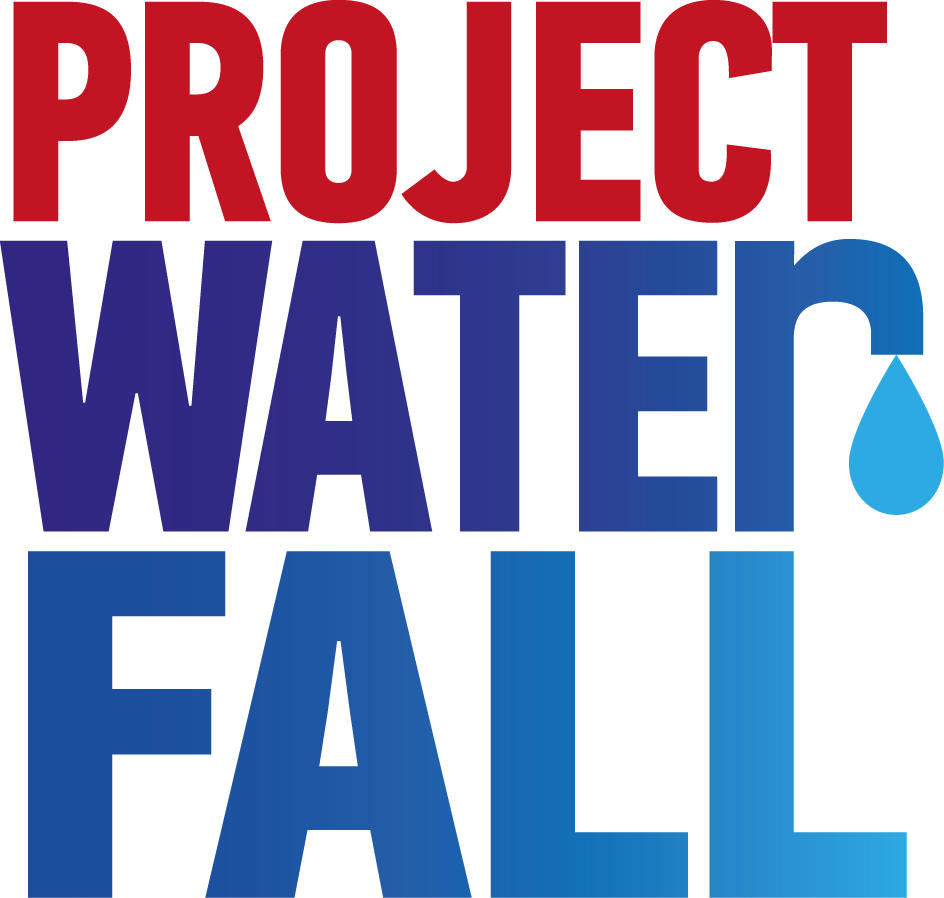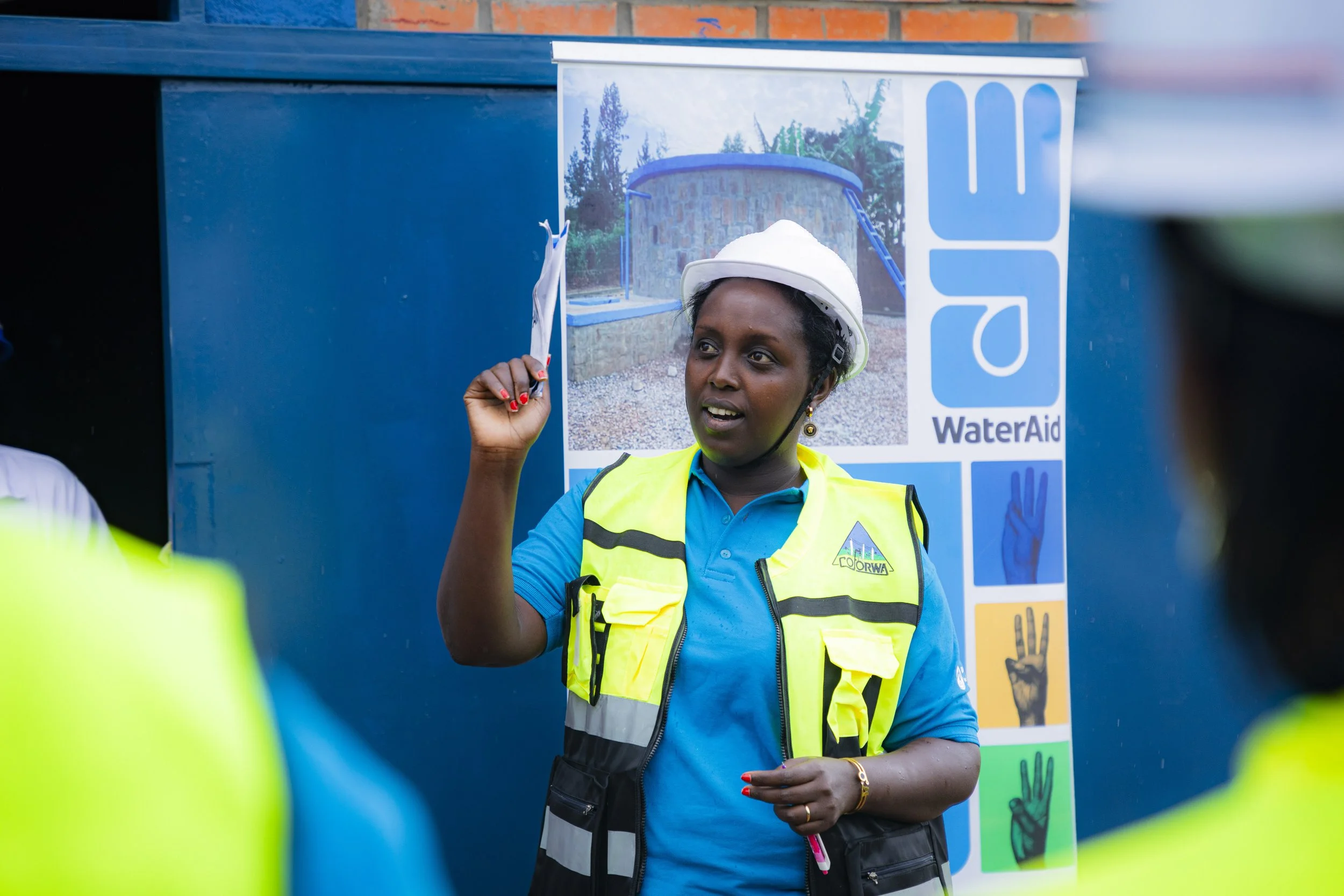This year Project Waterfall’s flagship campaign UK Coffee Week is raising funds for WaterAid’s Accelerating Access project in rural Rwanda which it started funding in the second year of the three-year project. It aims to reach 46,845 people in the communities of Mwogo and Juru regions with Water, Sanitation and Hygiene (WASH) by 2025. This is with Rwanda's water utility (WASAC), implementing partner COFORWA, and the local community to ensure sustainability and longevity of the project. To read more about the projects first year, click here.
Completed reservoir and water pump structures WaterAid/Bernard Abu. Mutijima
Rwanda, often referred to as the "Land of a Thousand Hills," is not only known for its breath-taking landscapes but also for its exceptional coffee. The country’s high-altitude terrain, fertile volcanic soil, and temperate climate create the perfect conditions for growing some of the finest Arabica coffee beans in the world. In 2022 coffee was the third most exported product in Rwanda with $112M worth shipped internationally. The popularity of Rwandan coffee in the international market has helped empower smallholder farmers and transformed local communities. This has been essential for the nation which is still recovering economically from the tragic events of the 1994 genocide.
However, despite these economic gains, Rwandan farmers are still faced with the barriers of inadequate access to clean water and sanitation. The rural, mountainous regions where coffee is grown pose some of the most pressing challenges for access to water. Due to the lack of adequate infrastructure for water supply, sources may be far from the communities, requiring farmers to travel long distances to collect water, usually disproportionately impacting women and children who bear the burden of domestic chores.
WaterAid/Bernard Abu. Mutijima
The Accelerating Access project aims to overcome this by using collaborative action to make significant strides in improving water and sanitation access in the regions. Below are some of the key milestones we have achieved in the second year.
Second year achievements
One of the most impactful accomplishments this year has been the completion of the water supply scheme in the Mwogo and Juru sectors. This major infrastructure project now provides clean and reliable water to 35,000 people who previously had limited access to safe water sources. The district government played a crucial role in this achievement by constructing 23 public taps and connecting them directly to the new water supply scheme. These taps now serve as vital access points for clean water, significantly improving the quality of life in these communities.
In addition to providing clean water, the project focused on improving sanitation practices. This year, 700 people were reached with essential messages on how to upgrade and maintain their household toilets. Promoting better sanitation at the household level helps ensure that the health benefits of clean water are fully realised.
A key component of this project is to support local government in planning, delivering, and financing water, sanitation, and hygiene (WASH) initiatives. This year, WaterAid actively participated in two Joint Action for Development Forum meetings. These forums are critical for evaluating the progress of the 'Bugesera District Performance Contract,' a key document guiding local development efforts.
These meetings provided valuable feedback on the progress made so far as well as identifying areas that required further attention, leading to a field visit to assess the condition of public taps that had fallen into disrepair. By coordinating with district officials, WaterAid were able to develop plans for rehabilitating these taps, ensuring continued access to water for the communities.
WaterAid/Bernard Abu. Mutijima
Community engagement and education are at the heart of our efforts to improve hygiene practices. This year, a remarkable 187,188 people were reached through community health workers and village leaders with key hygiene messages. These messages are vital for raising awareness about the importance of hygiene and its direct impact on health.
In addition to general hygiene education, parents were targeted with specific messages on breastfeeding and pregnancy health, reaching 824 parents in the process. These efforts are part of our broader strategy to improve maternal and child health outcomes by promoting practices that support the well-being of both mothers and their children.
Water collection from one of the many lakes in Bugesera - WaterAid/ James Kiyimba
As we move forward into the next phase of the project, we remain committed to building on the progress made so far. The partnerships formed with the district government, WASAC, COFORWA, and the community will continue to be the foundation of the success to ensure lasting impact on the lives of thousands of people by providing access to clean water, improving sanitation, and promoting better hygiene practices.
There is still a long way to go to close the inequality gap between coffee farmers at the start of the supply chain and coffee consumers at the end of the supply chain. By coming together as a community for UK Coffee Week, we can celebrate great coffee, whilst also raising funds to create a more equitable world for coffee farmers, helping them receive the basic human right of clean water and sanitation.
To help support Project Waterfall’s vital mission, look at how you can get involved in UK Coffee Week this October.





